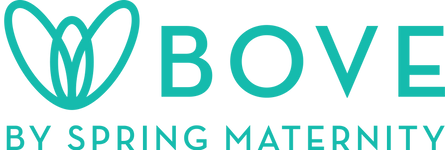
Prenatal Tests In 1st Trimester
While doing fun stuff like planning baby’s name, don’t forget to schedule your appointments with your doctor as well. You should do this as soon as you find out you’re pregnant.
Due Date
Your doctor will determine your due date at this appointment. If you know the date of your last period and when you conceived, be sure to mention it. If he’s not sure how far along you are, he’ll want to do an ultrasound to figure it out.
Medical Check
Your doctor will take note of both you and your husband’s medical histories and if you have any infections or drug allergies. He will include a pelvic exam (to measure the size of your uterus),a Pap smear, blood pressure reading and a weigh-in.
Blood Tests
Your first blood sample is full of important information. It’ll test for hCG levels which indicate if baby is developing well. It can also help confirm the pregnancy and date it. You’ll also be screened for sexually transmitted diseases, including syphilis and HIV, and for rubella. Finally, your blood type will be analysed in case you need blood transfusion and to determine the Rh factor of your blood.
Urine Tests
Your urine will be checked for protein to identify pre-eclampsia (or pregnancy high blood pressure).
Ultrasound
If your pregnancy is normal, you’ll have it twice, once near the beginning to see how far long you are, and the second time around 18-20 weeks to check your baby’s growth and make sure his organs are developing properly.
OSCAR (One-stop Clinic for Assessment of Risk for Foetal Anomalies)
This screens for risk of foetal anomalies, in particular Down Syndrome (Trisomy 21).
Chorionic Villus Sampling (CVS)
This is a diagnostic test to rule out chromosomal birth defects like Down Syndrome, Trisomy13, Trisomy18, Tay-Sachs and most types of sickle cell anaemia. It is done during the 10th-12th week. CVS is useful for women over 35 and those with a family history of a disease.
Nuchal Transluency Assessment (NT)
This early non-invasive test is available for parents concerned about genetic disorders. It measures the nuchal fold (back of your baby’s neck). Foetuses which have extra fluid at the base of their necks may have an extra chromosome. Besides Down syndrome, NT screens for congenital heart defects and other genetic disorders.
Cell-free foetal DNA testing
This test is used only for those who have a high-risk pregnancy to check for Down syndrome and two other genetic conditions: trisomy 18 and trisomy 13. You can have this done after 10 weeks of your pregnancy.
Due Date
Your doctor will determine your due date at this appointment. If you know the date of your last period and when you conceived, be sure to mention it. If he’s not sure how far along you are, he’ll want to do an ultrasound to figure it out.
Medical Check
Your doctor will take note of both you and your husband’s medical histories and if you have any infections or drug allergies. He will include a pelvic exam (to measure the size of your uterus),a Pap smear, blood pressure reading and a weigh-in.
Blood Tests
Your first blood sample is full of important information. It’ll test for hCG levels which indicate if baby is developing well. It can also help confirm the pregnancy and date it. You’ll also be screened for sexually transmitted diseases, including syphilis and HIV, and for rubella. Finally, your blood type will be analysed in case you need blood transfusion and to determine the Rh factor of your blood.
Urine Tests
Your urine will be checked for protein to identify pre-eclampsia (or pregnancy high blood pressure).
Ultrasound
If your pregnancy is normal, you’ll have it twice, once near the beginning to see how far long you are, and the second time around 18-20 weeks to check your baby’s growth and make sure his organs are developing properly.
OSCAR (One-stop Clinic for Assessment of Risk for Foetal Anomalies)
This screens for risk of foetal anomalies, in particular Down Syndrome (Trisomy 21).
Chorionic Villus Sampling (CVS)
This is a diagnostic test to rule out chromosomal birth defects like Down Syndrome, Trisomy13, Trisomy18, Tay-Sachs and most types of sickle cell anaemia. It is done during the 10th-12th week. CVS is useful for women over 35 and those with a family history of a disease.
Nuchal Transluency Assessment (NT)
This early non-invasive test is available for parents concerned about genetic disorders. It measures the nuchal fold (back of your baby’s neck). Foetuses which have extra fluid at the base of their necks may have an extra chromosome. Besides Down syndrome, NT screens for congenital heart defects and other genetic disorders.
Cell-free foetal DNA testing
This test is used only for those who have a high-risk pregnancy to check for Down syndrome and two other genetic conditions: trisomy 18 and trisomy 13. You can have this done after 10 weeks of your pregnancy.

Leave a comment